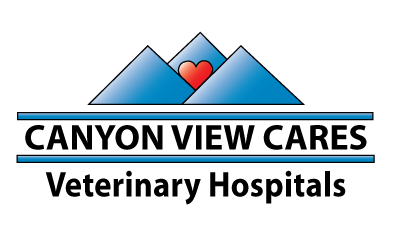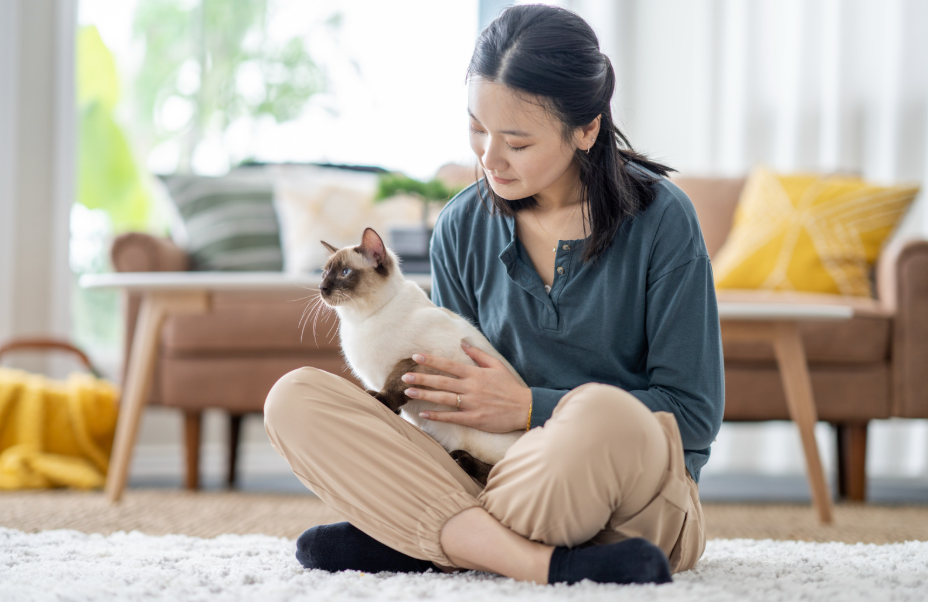As dedicated pet owners, we view our animals as cherished members of the family. We work diligently to create a safe, nurturing environment for them, but even the most careful homes can harbor hidden dangers. Many everyday items that are harmless to us can be surprisingly toxic to dogs and cats, turning an ordinary day into a veterinary emergency.
At Canyon View Cares Veterinary Hospital Perry, we are committed to providing compassionate veterinary care that puts relationships first. As a top-rated veterinarian in Perry, we believe that empowering our community with knowledge is the best way to prevent accidents. This guide outlines ten common household items that are toxic to pets, helping you create a safer home for your companion.
1. Human Medications
One of the most frequent and dangerous pet emergencies is the accidental ingestion of human medication. A pet’s body processes drugs very differently from ours, and a standard human dose can be lethal for them. Over-the-counter pain relievers are a primary concern; Acetaminophen (Tylenol) is extremely toxic to cats, causing severe liver and red blood cell damage. Other common prescriptions, such as antidepressants, ADHD medications, and heart pills, are also highly poisonous. Always keep all medications—for both humans and pets—in sealed containers and stored securely in a cabinet that your pet cannot access.
2. Common Plants in and Around the Home
Plants can add beauty and life to a home, but many popular indoor and garden varieties are poisonous if ingested by curious pets. It's crucial to identify the plants in your home and yard to ensure they are safe.
- Lilies: All parts of a true lily (such as Easter, Tiger, and Stargazer varieties) are extremely toxic to cats. Ingesting even a small amount of pollen while grooming can lead to acute, irreversible kidney failure.
- Sago Palm: This decorative plant is highly toxic to both dogs and cats. The seeds are the most dangerous part and can cause severe vomiting, seizures, and liver failure.
- Oleander, Azaleas, and Rhododendrons: These common landscaping shrubs contain potent toxins that affect the heart, potentially causing severe cardiac complications.
- Tulips and Hyacinths: The bulbs of these flowers contain the highest concentration of toxins. If a dog digs one up and ingests it, it can cause intense oral irritation, drooling, and gastrointestinal upset.
3. Human Foods
Sharing table scraps may seem like a harmless treat, but many human foods are surprisingly dangerous for pets.
- Chocolate: Contains theobromine, a compound that dogs cannot metabolize efficiently. Dark and baking chocolates are the most hazardous.
- Grapes and Raisins: These fruits can cause sudden kidney failure in dogs, even in small quantities.
- Xylitol: Found in sugar-free gum, candy, peanut butter, and baked goods. In dogs, it causes a rapid, life-threatening drop in blood sugar and can lead to liver failure.
- Onions, Garlic, and Chives: These allium plants can cause oxidative damage to red blood cells in both cats and dogs, leading to anemia.
- Macadamia Nuts: Can cause weakness, tremors, vomiting, and an elevated body temperature in dogs.
- Alcohol: Even small amounts can cause intoxication, disorientation, and respiratory distress in pets.
4. Household Cleaning Products
The products we use to keep our homes clean often contain harsh chemicals. Bleach, ammonia-based cleaners, toilet bowl scrubs, and drain openers can cause severe chemical burns to the mouth, esophagus, and stomach lining if ingested. The fumes can also irritate a pet's respiratory system. It is best to keep your pet in another room while cleaning and ensure all surfaces are completely dry before allowing them back into the area.
5. Pest Control Products
Products designed to kill rodents, insects, or snails are inherently poisonous and pose a grave danger to our pets. They are often formulated with ingredients that taste good to attract pests, which also makes them appealing to curious animals.
Rodenticides: A common cause of pet poisoning, which can result in internal bleeding, brain swelling, or kidney failure.
6. Antifreeze
Ethylene glycol, the primary ingredient in most automotive antifreeze, has a sweet taste that is highly attractive to pets. A small lick can be fatal, causing acute and irreversible kidney failure. The initial symptoms may mimic drunkenness but progress quickly to a critical stage. Always clean up antifreeze spills immediately and thoroughly.
7. Batteries
If chewed or swallowed, batteries of any kind can cause severe injury. The alkaline or acidic compounds can leak, causing deep, corrosive burns to the mouth, throat, and stomach. Small, round "button" batteries are particularly hazardous, as they can become lodged in the esophagus and burn through the tissue in a matter of hours.
8. Potpourri
Both liquid and dried potpourri can pose a threat. Liquid potpourri often contains essential oils and detergents that can cause severe chemical burns if ingested. Dried potpourri, while less corrosive, can still lead to stomach upset or form a dangerous intestinal obstruction if eaten in large quantities.
9. Fabric Softener Sheets
The strong fragrance of dryer sheets may attract a curious pet. However, these sheets contain detergents that can cause oral irritation, ulcers, drooling, and vomiting if ingested. If swallowed whole, the sheet itself can also create a foreign body obstruction in the gastrointestinal tract.
10. Fertilizers and Cocoa Mulch
Many common lawn and garden products can be harmful if eaten. Some fertilizers contain a dangerous mix of nitrogen, phosphorus, and iron that can cause severe stomach upset. Cocoa mulch is particularly hazardous for dogs, as it is made from cacao bean shells and contains theobromine—the same toxic compound found in chocolate.
Compassionate Care in Perry When It Matters Most
Preventing an accident is the most effective way to ensure your pet’s health and well-being. By pet-proofing your home against these common toxins, you take a proactive step in protecting the special relationship you share with your companion.
However, if an accident occurs, immediate veterinary care is essential. If you believe your pet has ingested a toxic substance, please contact a veterinarian right away. Canyon View Cares Veterinary Hospital Perry is here to provide the compassionate, expert veterinary care your pet deserves. Call us immediately or request an appointment for guidance and support.

